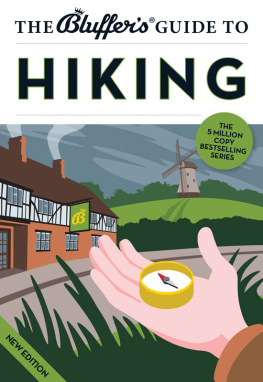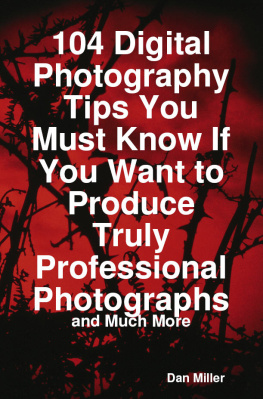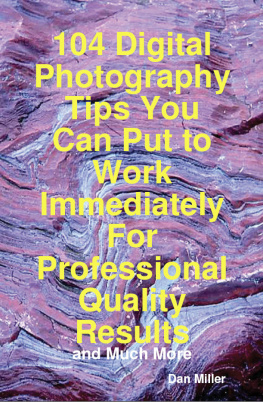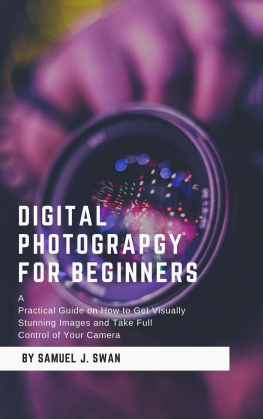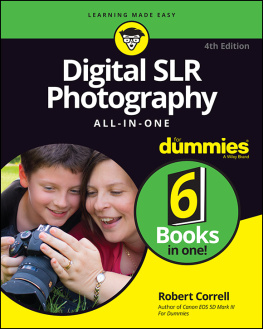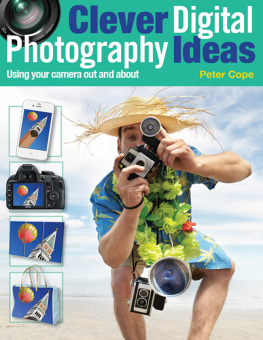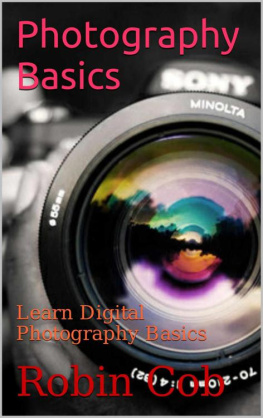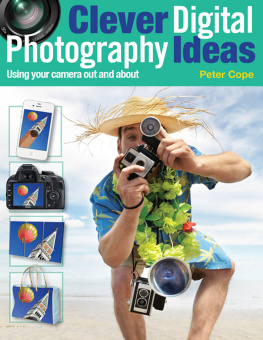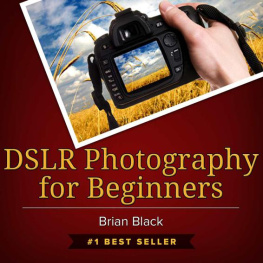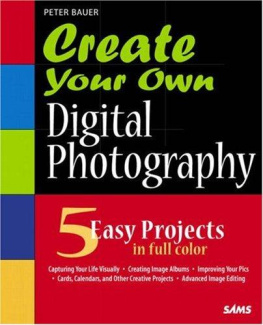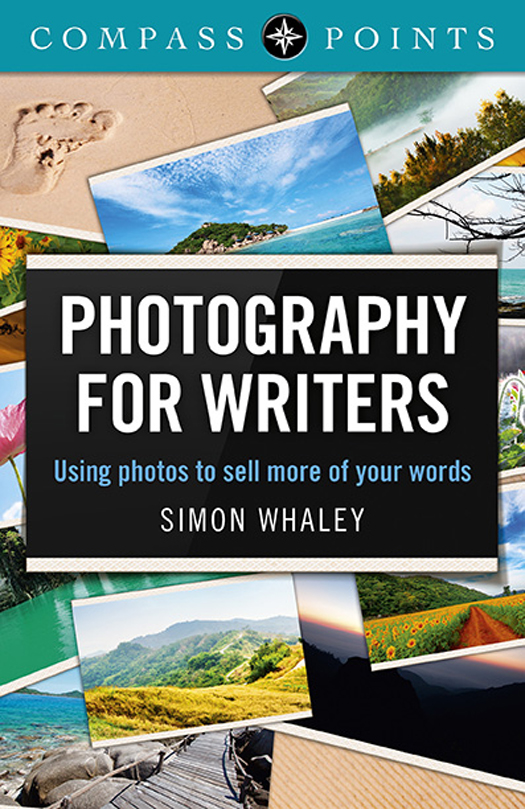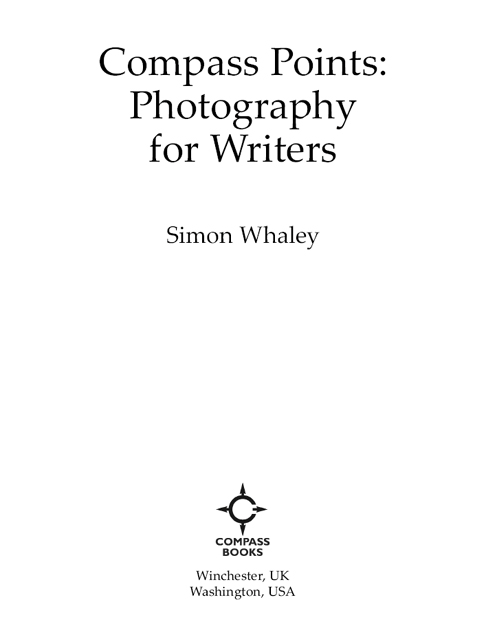First published by Compass Books, 2014
Compass Books is an imprint of John Hunt Publishing Ltd., Laurel House, Station Approach, Alresford, Hants, SO24 9JH, UK
www.johnhuntpublishing.com
www.compass-books.net
For distributor details and how to order please visit the Ordering section on our website.
Text copyright: Simon Whaley 2013
ISBN: 978 1 78099 935 7
All rights reserved. Except for brief quotations in critical articles or reviews, no part of this book may be reproduced in any manner without prior written permission from the publishers.
The rights of Simon Whaley as author have been asserted in accordance with the Copyright, Designs and Patents Act 1988.
A CIP catalogue record for this book is available from the British Library.
Design: Lee Nash
Printed and bound by CPI Group (UK) Ltd, Croydon, CR0 4YY
We operate a distinctive and ethical publishing philosophy in all areas of our business, from our global network of authors to production and worldwide distribution.
Other Books by Simon Whaley:
The Positively Productive Writer
One Hundred Ways For A Dog To Train Its Human
One Hundred Muddy Paws For Thought
Puppytalk - 50 Ways To Make Friends With Your Puppy
Running A Writers Circle
Best Walks in the Welsh Borders
Fundraising for a Community Project
The Little Book of Alternative Garden Wisdom
The Bluffers Guide to Banking (by Robert Cooper and Simon Whaley)
The Bluffers Guide to Hiking
The Bluffers Guide to Dogs
Contributed To:
The Freelance Photographers Project Book
100 Greatest Walks in Britain
100 Stories For Queensland
Acknowledgements
Id like to thank my beta-readers, Julie Phillips and Diane Perry, for the time they took in reading an early draft of this text, and for their feedback, which was immensely useful. Id also like to thank my students, who were always asking questions about illustrating their articles and books, which made me realize that a book on this subject was needed!
Introduction
I sold a 1200-word article to an American magazine for 200 ($300). They also used six of my photographs, for which they paid me an additional 600 ($900). So, which would you rather be: the writer who gets 200 ($300), or the writer/photographer who gets 900 ($1200)?
To the uninitiated, photography is all about shutter speeds, apertures, and interchangeable lenses. For serious photographers it still is, however, the advent of digital photography has enabled anyone and everyone to take a decent, publishable photograph. That includes you: the freelance writer. Armed with a simple digital camera, you too could become the writer/photographer earning extra cash. In the right market, even a snap taken on a mobile phone is publishable and can earn you some money.
Pick any magazine off a newsagents shelf, flick through the pages, and you cant fail to notice how visual todays publications are. Whether its a letter on a magazines letters page, a filler on a household tips page, or an article, photographs are everywhere. Even illustrated non-fiction books are cheaper to produce, these days.
To get your photos published you do not need to be a professional photographer with six different camera bodies, 22 different interchangeable lenses and a photographic exhibition running in a top London gallery! All you need is a digital camera. It can be one of those compact cameras you buy from any high street store and slip into your pocket. And its not necessary to do lots of processing with the image on your computer afterwards either. If you can hold a camera steady and press a button, you can take a publishable photo, capable of illustrating your words.
Thats not to say that professional photographers are wasting their time; theyre not. With the right equipment, software and knowledge they can take fantastically stunning photos. My interest in photography has developed (no pun intended!) so much, I now use a camera many professionals use. This means I spend time processing my photos in what many photographers have come to call the digital darkroom (using computer software). But this book will show you that you dont need a professional camera, or complicated software, to take publishable photographs to accompany your words.
As a creative writing tutor and workshop facilitator, Im regularly asked how to submit photos with articles and books. Do you insert them into your text, or send them as separate attachments? Do you email them, or send them on a CD Rom? What does hi-res mean and why do magazines want photos at 300dpi? What is 300dpi? All of these questions, and many more, will be answered in Photography for Writers.
Photography for Writers will show you:
how to take pictures that an editor will want to use,
what picture quality is about, and why images from the Internet are useless (and why using them may be illegal),
how to use your camera effectively, to get better images (without getting technical),
how to file and store your photos,
how to use someone elses photographs, for free, (and legally) to illustrate your articles,
how to submit an illustrated article to a publication,
the legalities of where and when you can and cant take photos for publication.
Theres even advice about how to take your photography a little further, opening up new markets, to enable you to make the most of the photos youve already taken to illustrate your words. And there are useful tips and advice about how to use your camera as a research tool.
examines illustrating non-fiction books, and considers why photographs arent right for every book, including this one. Photography for Writers is designed to show you how to sell more words, by offering suitable photographs in the correct and appropriate way.
There is, though, a website to accompany this book, which contains more information on some of the topics I discuss here. To find out more visit:
www.photography-for-writers.blogspot.co.uk.
Writers should be photographers for another reason. We are observers. We watch and notice things and jot down those thoughts. When you look at the world with a photographers eye, youll notice more, and for a writer thats great! Having a camera with you at all times, to capture any interesting scenes and images, can generate more ideas.
Photography for Writers will show that by offering photos with your words you can increase the amount of money you are paid for your ideas, open up new markets you may never have considered before, and demystify the process of submitting your images. If everything about taking publishable photos has been a blur to you, Photography for Writers will bring it all sharply into focus. (That pun was intended!)
Chapter 1
Why Writers Should Consider Photography
Take a look at any magazine and youll see that it is full of glossy, colourful pictures. In fact, some magazines have more photographs than words! If you aspire to be a freelance writer and want to sell your words to a magazine, or publication, or if youve had some success to date but want to build upon that success, then I believe you should consider adding photography to your list of skills. Why? Because it makes good business sense.


